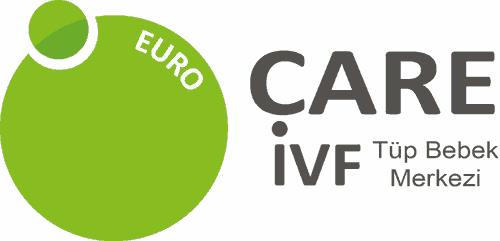
Contraceptive pills help regulate your menstrual cycle and control the timing of your IVF cycle. Usually, the EuroCARE IVF doctor will advise taking birth control pills 3 or 4 weeks prior to your treatment. There are several reasons for using this contraceptive approach in IVF treatments.
How birth control pills work?
Birth control pills are hormone-based medicines that are taken daily to prevent pregnancy from occurring. The hormones in the pill (oestrogen and progesterone) stop ovulation. As a result, a woman cannot release an egg from her ovary during that month, so fertilisation cannot occur. The pill also thickens the mucus on the cervix, which acts as a natural barrier to sperm.
Why use birth control pills in IVF?
In a normal menstrual cycle, only one egg is released during a particular month. In an IVF cycle, multiple eggs are grown at the same time to increase the chances of fertilisation and successful implantation. By taking birth control pills prior to ovarian stimulation, you’re helping your ovaries to respond better to the stimulation medication.
This allows not only to effectively schedule appointments, but it also helps us focus on your medical procedures and embryos. Having a limited number of embryos also helps us reduce the number of times the incubator doors are opened in one day and therefore, maximise results in our embryology lab.
Birth control pills can also decrease the risk of developing cysts and therefore, prevent a delay in your cycle. All these benefits give you the flexibility to plan and enjoy your IVF holiday in North Cyrus to the fullest.
Pre-cycle testing & treatment plan
Before starting your treatment, the EuroCARE IVF specialist will review the results of your infertility evaluation and will create a personalised treatment protocol. The treatment protocol contains information about your cycle — from medications to lab procedures, from embryo transfer to embryo freezing. The treatment timelines, however, will be adjusted based on how you respond to the medication.
Pre-treatment preparation
Contraceptive pills are taken for 21 days, followed by a 7-day break. After you stop taking the pill on day 21 of your cycle, your period will start 3-4 days later. You can then start your stimulating medication, often on day 2 of that bleed. Before that, you’ll have a blood test to check your oestradiol level and an ultrasound to examine the ovaries.
In women with low ovarian reserve because of age, premature ovarian insufficiency or early menopause, contraceptive pills may be counterproductive because further suppression of the ovaries may harm your chances of IVF success.
The doctor may not prescribe birth control pills if you have a ‘red flag’ condition (e.g. heart disease, haematological issues, known/suspected breast/uterine cancer) which might put your health at risk. If birth control pills are not a suitable option for you, the doctor will recommend an alternative approach to control your cycle.
Ovarian stimulation
Once you’re off the birth control pill, you will be prescribed gonadotropin medications to stimulate your ovaries to produce multiple eggs. This stage may last 8 to 14 days. In addition, you will also need to take drugs to prevent the body from releasing mature eggs too early. At this stage of the IVF process, the doctor may adjust your treatment protocol if your ovaries do not respond well to the stimulation injections or if there is a small number of developed eggs.
Egg retrieval & fertilisation
Once enough eggs have been produced, you will be administered an hCG trigger shot. This will help the final maturation of eggs and will prepare them for retrieval. Using an ultrasound to visualise the ovaries, the doctor will identify the mature eggs and will then insert a thin needle through the cervix to collect them from the follicles.
Once retrieved, your eggs will be examined by a lab specialist and fertilised by your partner’s (or donor’s) sperm using an intracytoplasmic sperm injection (ICSI) method.
Embryo development & transfer
Fertilised eggs will typically become embryos 1-3 days after fertilisation. They are transferred to the uterus on the third or fifth day. Sometimes, we prefer to wait until the embryos become blastocysts (day-5 embryos) when they are ready to implant into the uterine wall.
Embryo transfer is a relatively simple and quick procedure, taking only 15-20 minutes. The fertility doctor will place the embryo(s) in your uterus using a thin, flexible catheter. You may feel some mild cramping after the transfer.
Two-week waiting time
The embryo(s) will implant into the uterine wall between 1 and 5 days after embryo transfer and continue growing. To check whether pregnancy has occurred, a beta HCG blood test will be scheduled two weeks post-transfer.
If your test is positive, you probably must have a repeat test and/or an ultrasound scan in the next 2-3 weeks. If your pregnancy test is negative, you may be recommended another IVF cycle or alternative treatment options like egg/sperm/embryo donation.
Make a wise decision with EuroCARE!
Birth control pills can prevent the ovaries from producing an egg for a month prior to in vitro fertilisation (IVF) which can enhance your chances of falling pregnant. However, this approach may not be suitable for every patient, so your cycle may be controlled using alternative methods.
Schedule a FREE video consultation with our IVF specialist, Dr Yucel Inan, to decide if taking birth control medication would be beneficial for you prior to your IVF treatment, and start your journey to parenthood with confidence.
